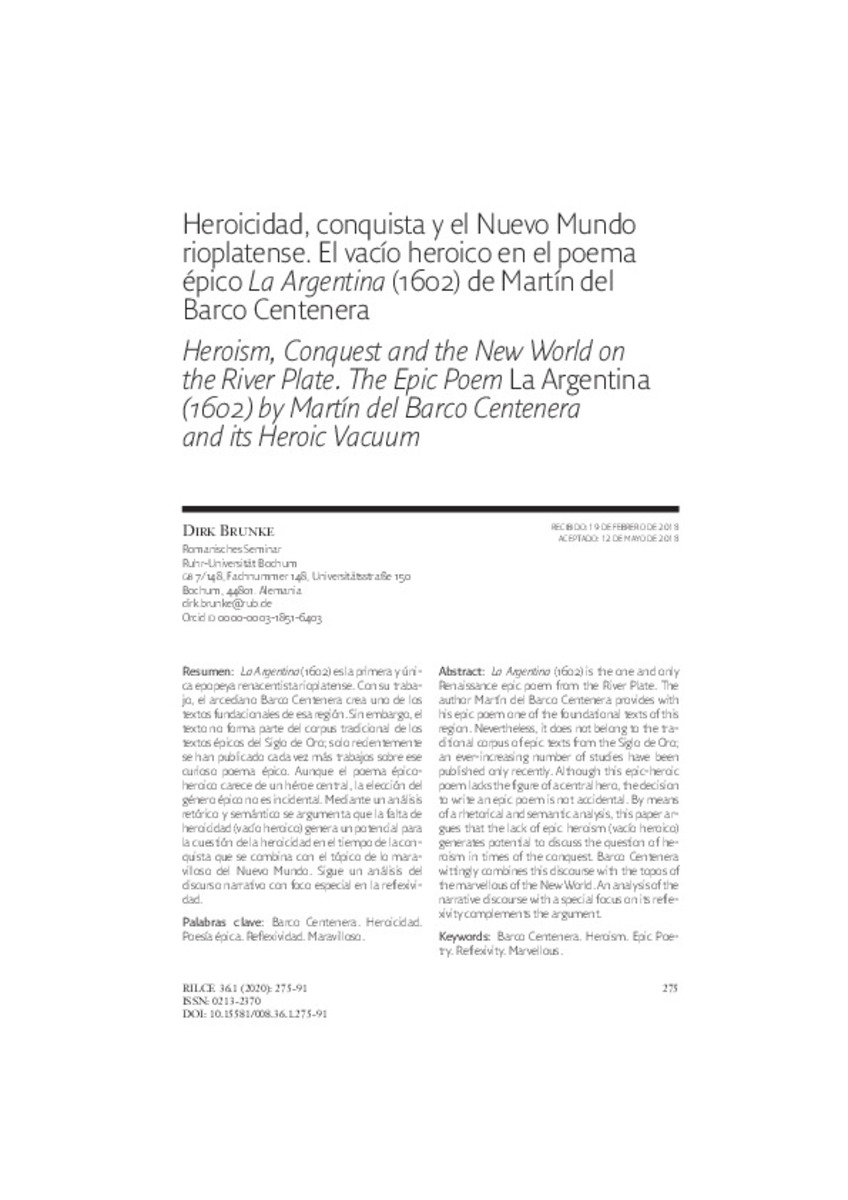Heroicidad, conquista y el Nuevo Mundo rioplatense. El vacío heroico en el poema épico "La Argentina" (1602) de Martín del Barco Centenera
Other Titles:
Heroism, Conquest and the New World on the River Plate. The Epic Poem "La Argentina" (1602) by Martín del Barco Centenera and its Heroic Vacuum
Keywords:
Barco Centenera
Heroicidad
Poesía épica
Reflexividad
Maravilloso
Publisher:
Servicio de Publicaciones de la Universidad de Navarra
Citation:
Brunke, D. (Dirk). "Heroicidad, conquista y el Nuevo Mundo rioplatense. El vacío heroico en el poema épico "La Argentina" (1602) de Martín del Barco Centenera". Rilce. Revista de Filología Hispánica. 36 (1), 2019, 275 - 91
Statistics and impact
0 citas en

0 citas en

Items in Dadun are protected by copyright, with all rights reserved, unless otherwise indicated.







